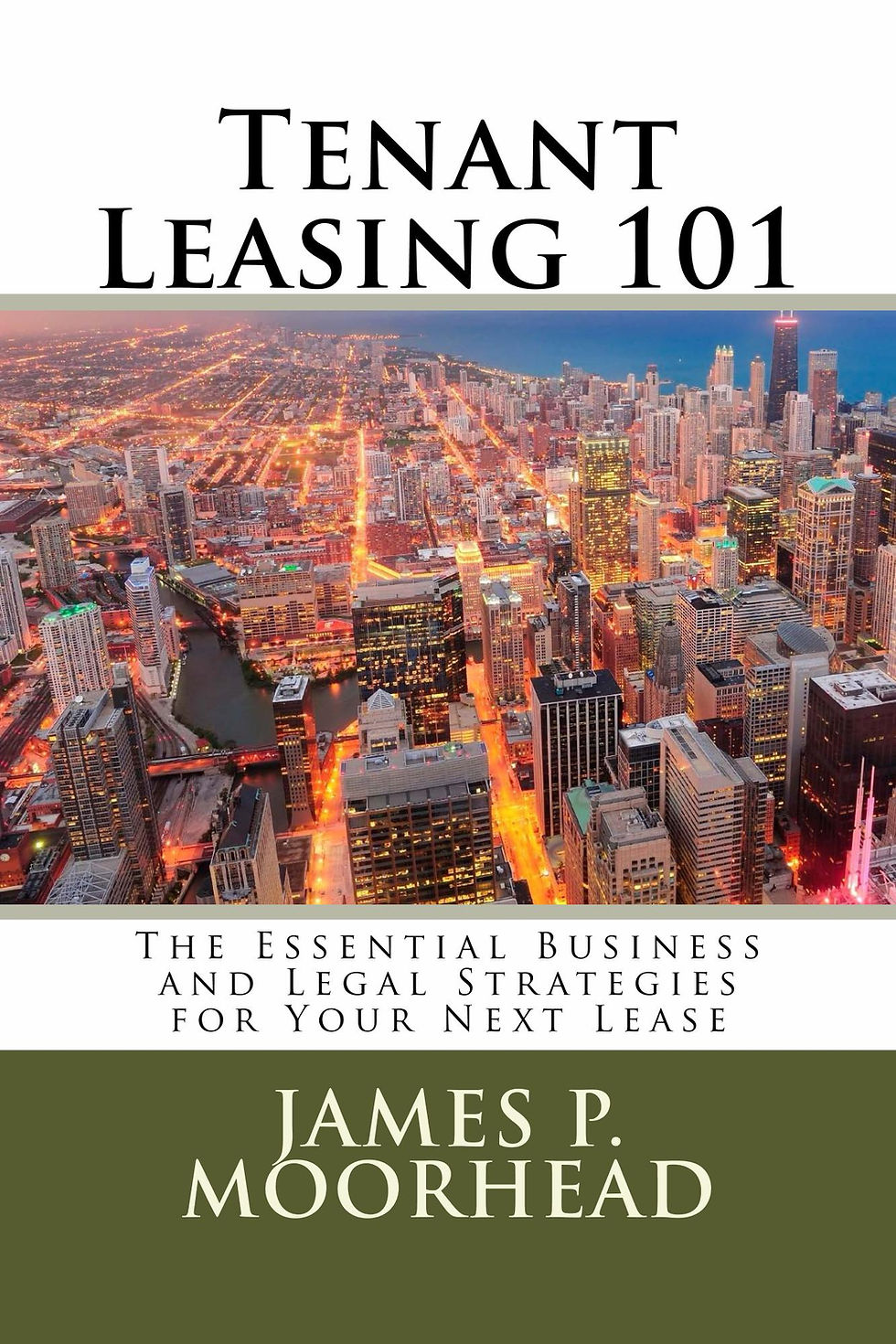Tenant Leasing 101: I Need To Lease Space, But What Do I Do? The Very Basics
- James P. Moorhead
- Sep 7, 2017
- 2 min read

The following is an excerpt from Jamie Moorhead's book, Tenant Leasing 101, available in paperback and Kindle formats on Amazon here:
Unless you plan to work from home or purchase a property for your business, you very likely will need to lease space for your company. If you already are in operation and are leasing space, you probably are aware of when your lease expires. For as long as you are leasing, you should be familiar will the fundamentals of leasing, including the general timeline for any typical lease negotiation.
Using a Broker
Unless you know the exact space that you want to lease and feel comfortable negotiating the lease terms, including tenant incentives and other benefits, it probably is a very good idea to use a real estate broker for your next lease. A good broker will know the properties in particular geographic areas, current rental rates, and what tenant incentives might be available. In short, a broker can help you secure the best economic package for your new lease.
Brokers often will specialize in particular types of property and geographic areas. There are brokers that specialize in office, retail, warehouse, or restaurant properties, and there are those who work in suburbs, downtown areas, and other markets. Picking the right broker for your transaction is an important process, and asking for referrals is a great way to meet the right person to help. It should be noted that broker commissions virtually always are paid by landlords.
Negotiating the Terms
Once you secure the right broker, that person will help you look at sites, compare rent and other lease economics, negotiate the final deal, and finalize a letter of intent. A letter of intent is a non-binding document listing the business terms of the proposed lease. It will include rent, term length, extra costs like insurance, taxes, and building operating costs, and it will list any tenant incentives, including things like rent abatement and construction allowances.
Timing
Finding a site to lease can be a lengthy process, especially for retailers who need a particularly good site for customer traffic. Businesses should anticipate the length of this process.
If you are starting a business, it will consume a large part of your start-up mental energy and focus. Be prepared for this, and reserve enough time to carefully review the entire deal, including additional costs and terms that may drag down anticipated profit.
If you currently have a business and are leasing now, begin the lease or renewal process with enough lead time so that you do not become a “captive tenant” in your existing space – finding yourself stuck at the end of your lease term without a deal for renewing or moving will make you feel (and appear) desperate and can hurt your negotiating leverage. Landlords probably will know your desperate situation and will take advantage of this in the dealmaking process.
Timing, planning, and good advice are three pillars upon which you can successfully navigate through a lease transaction and get back to focusing on your number one priority: the success of your business.
For more, please visit Tenant Leasing 101 on Amazon here.
















